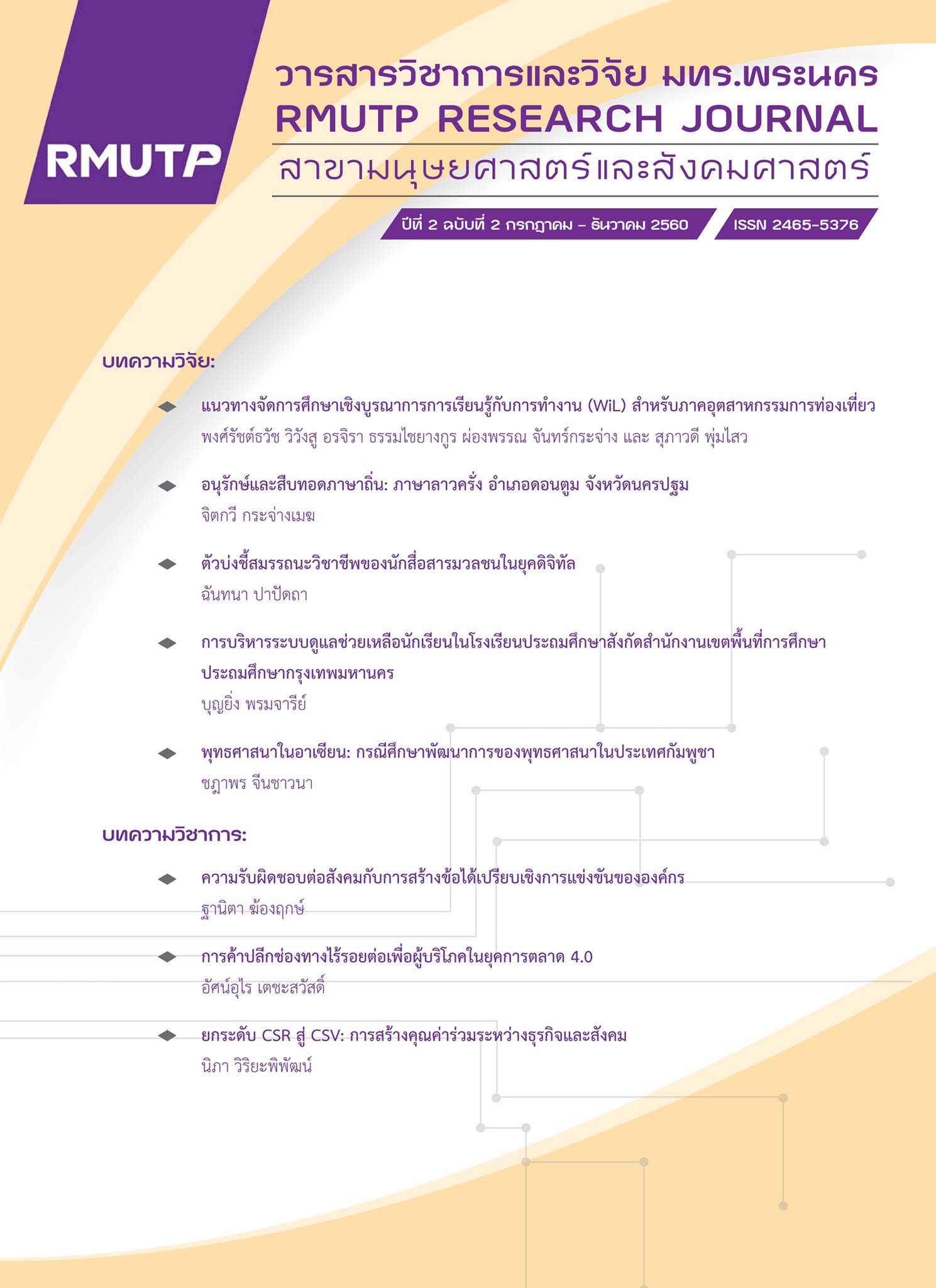Guidelines for Education Management of Work-integrated Learning (WiL) for Tourism Industry
Main Article Content
Abstract
The purposes of this research were to study the education model and express the guidelines of education management of work-integrated learning (WiL) for tourism industry model. The research method was used by quantitative approach and qualitative approach by studying relevant approaches and theories including the synthesis of documents and researches. Data were collected by questionnaires, in-depth interview, and group discussion with target persons who are from academic institution, business sectors, and organization profession of tourism industry. The research findings showed as follows. First, the highest level of learners' work experience benefits and challenge of work-integrated learning (WiL) is to prepare the learners for work in the future. Secondly, the key success factor of education management of work-integrated learning for tourism industry is to establish in educational cooperation among academic institution, business sectors, and organization profession of tourism industry. In the part of the essence of educational cooperation is to develop the curriculum program together by providing the opportunity for learners to practice and work in business sectors in accordance with the authentic learning method, and the authentic assessment as well. Moreover, there should be sharing the experiential learning among instructors, learners, and experts from business sectors and organization profession of tourism industry to develop the appropriate and modern education management of work-integrated learning (WiL) for tourism industry model.


